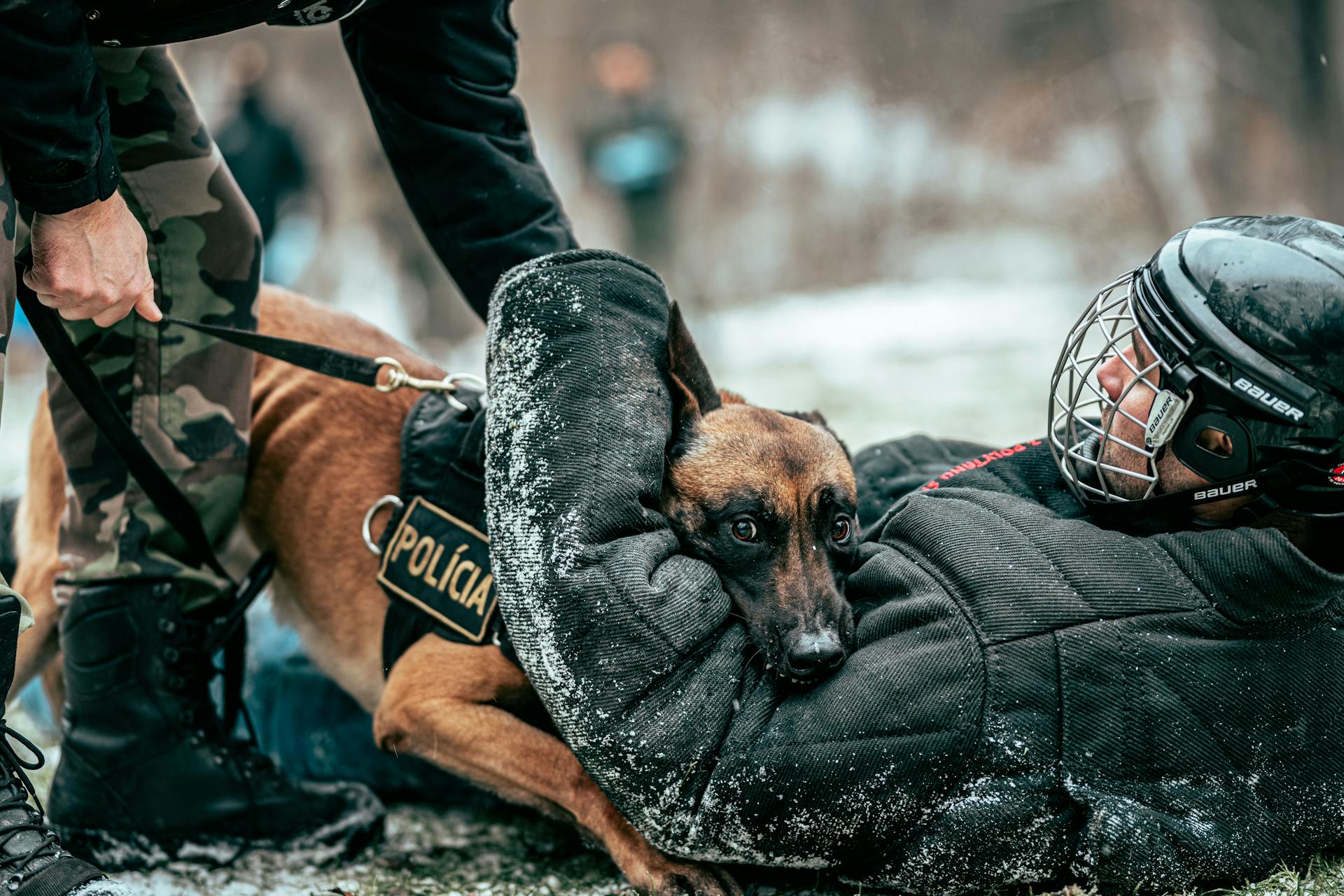
It’s not uncommon for cats to roam a bit, and if you live in an area near wild coyotes unfortunately it means that your cats could be at risk. Coyotes are known to prey on cats, small dogs, and other animals they can hunt. Thankfully there are steps you can take to protect your feline friends and keep them safe from coyotes.
The most important thing is to not leave your cats outdoors unsupervised. Keeping them strictly indoors can significantly reduce the chances of this type of attack. If you want your cats outdoor access, set up a safe outdoor enclosure with a cover or netting for extra protection. Be sure to check the fencing for any gaps where coyotes could sneak in and also make sure that there’s no low hanging branches or shrubs that could be used as access points.
Next, take steps to make your yard less attractive to coyotes in the first place by creating a “coyote-proof environment”. Trim back any overgrown vegetation that provides cover for coyotes who are looking for food or shelter—that includes tall grass, leaf-piles, rubble piles, low shrubs etc. Stick garbage cans in an enclosed shed or garage rather than letting them stay outside next to fences or near other areas of potential entry. If you feed birds or other wildlife, be sure to use wire mesh feeders which prevent large animals such as coyotes from accessing it.
Finally - don’t forget non-physical deterrents too! Install motion activated lights around your yard which will startle the animals when they hear sound and movement around their living spaces; playing loud music whenever possible is also recommended as a way of deterring coyotes from entering your yard. Most importantly though - never leave food outside in ways accessible by wild animals such as raccoons and skunks that could attract curious predators like coyotes - always remember just one more thing: these creatures are utilizing their natural hunting instincts and so staying vigilant with caution is key!
If this caught your attention, see: Scare Coyotes
What are the most effective ways to deter coyotes from cats?
The rise in urban sprawl has brought with it a murky debate - how do you keep your precious cats safe from unwanted coyotes? It’s a problem that deserves our attention, as thousands of pet cats are lost or hurt every year due to run-ins with coyotes. The good news is that you have some control to keep your feline friend safe!
The best way to protect those precious cats is to be proactive in deterring coyotes. An important practice is removing sources of food and water that attract them. You should keep pet food indoors and be vigilant about leaving trash cans or compost piles open or unsecured. It’s also helpful to contain any other potential sources of prey like rodents, birds, or rabbits in your yard.
Another fantastic way to protect cats from coyotes is through alterations on your house or property: Install motion activated lights, add loud noises (such as banging sticks), and use strong odors like citronella oil can all help repel the unwelcome invader. If you don’t want lights going off throughout the night, adding large fence has also been known to be an effective way for keeping away those pesky critters. Encasing the bottom area with chicken wire can act as an extra barrier too.
By taking a few simple steps, you can successfully optimize chances of keeping cats and coyotes far apart - providing a bit of peace of mind while also protecting any furry friends around your home!
A different take: What Kind of Dog Is Cannoli on B Positive?
How can cats protect themselves from coyotes?
Coyotes are becoming increasingly prevalent in the United States, which often leads to conflicts with cats, who have no natural defense against the predators. Fortunately, there are several steps people can take to help keep their cats safe from menacing coyotes.
The first protective step that people can take is to make sure that their cats are kept indoors and are not allowed to roam outside unsupervised. Coyotes often hunt during twilight hours when cats may mistake them for harmless outdoor visitors or potential playmates. Keeping cats inside eliminates potential encounters with coyotes and keeps them safe from other outdoor dangers.
In addition to keeping cats inside, owners should ensure that even outdoors, their kittens and cats remain in an enclosed area where coyotes can not reach them. A securely constructed fence will ensure that any visiting coyotes cannot get close enough to harm the feline inhabitants of your yard. Fixing broken fencing and trimming back shrubbery or trees which may serve as a bridge for animals climbing over the fence is an important precaution.
Finally, training your cat or kitten in defensive behavior such as making loud noises, generally acting aggressively and displaying its claws are effective deterrents when it comes to deterring predatory coyotes. In the event of an attack, a well-practiced cat will be better prepared to ward off the attacker then one who has had no chance to practice their anti-coyote techniques.
By following these precautions you can ensure that your own beloved cats remain safe from the dangers of roaming coyotes who may try to pick a fight with your feline friends!
You might like: People Hunt Rabbits
What kinds of safety precautions should be taken when cats are outdoors to prevent interaction with coyotes?
Coyotes and cats often have interactions, some of which can be disastrous and even deadly. Therefore, it is important to take necessary safety precautions when a cat is allowed outdoors to prevent any interaction with coyotes.
The most important precaution to take is to ensure your cat is supervised while they are outside. Even cats who are considered indoor cats should, at the very least, have adult supervision when they go outdoors, as this will help reduce the chances of a cat discovering a coyote or vice versa. It's also a good idea to keep the cat closer to home if possible, as that reduces the possibility of stray cats encountering coyotes who may be far from home roaming for food or shelter.
In addition to supervising your feline friend, consider using "cat-proof" fences or netting around the perimeter of your yard or garden. This will help keep stray cats out while keeping your pet inside at the same time. You might also consider purchasing motion sensors or other alarm systems which can help detect any unwelcome visitors quickly.
Finally, simply keep an eye on your environment and watch for any signs of coyote activity in and around your yard such as footprints, droppings or fur tufts caught on fencing. If you do encounter a coyote in the vicinity, immediately level an aggressive reaction that serves to startle the animal such as clapping your hands or yelling from afar – this will usually lead them away from the area without confrontation and ensures that both you and your pet remain safe from harm’s way.
Check this out: How Big of a Yard Does a Dog Need?
What kind of deterrents can be used to prevent coyotes from coming into contact with cats?
Coyotes pose a serious risk to cats, who are much weaker than their canine adversaries. Fortunately, there are numerous deterrents that can help keep cats safe from coyotes, allowing pet owners to rest easy knowing their feline friends are safe.
For starters, sound can be an effective deterrent for coyotes. Installing motion-activated noisemakers such as wind chimes or even battery-powered alarms in places where cats may roam can be a great way to scare off any nearby coyotes. These types of measures should also be coupled with adding more lighting to yards and gardens where cats can wander freely - the combination of sound and light should make the area inhospitable for potential predatory coyotes.
For added protection, another smart move is to install GPS tracking on each of your pets so their whereabouts can always be monitored. Additionally, it's wise to keep your cats indoors at night or put them on a leash during walks through open fields or denser woods where they may encounter prowling coyotes or other dangerous wildlife. It's also important to make sure your yard is properly enclosed with a strong fence that's tall enough and has no gaps that might allow intruders like coyotes onto the property. By following these tips, you should have no trouble keeping your furry friends far away from any coyote encounters..
If this caught your attention, see: When Someone Says It's Just a Dog?
How can cats be kept safe from coyote attacks?
Cats are beloved pets, but owners may worry that their feline fur babies can be vulnerable to attacks by coyotes. Fortunately, there are steps pet owners can take to give their cats the best chance of avoiding a dangerous encounter.
The best defense against coyotes is prevention. Pet owners should keep their cats indoors, especially at night when coyotes are most active. It is also important to ‘cat-proof’ outdoor areas and yards since cats sometimes become curious about surroundings, and may even venture out of the house for a bit of exploration. Make sure fences are secure and tall enough that it would be difficult for a coyote to jump over and get access to your cat.
Walk cats on leashes, closely supervising them all times when outdoors. Keep a watchful eye out for any wildlife in the area as well as any strange behavior from your cat as you take walks together. It's also important to remember that food and drinks attract wild animals so always make sure that bowls inside and outside the house are clean of remains after meals time, which will prevent coyotes or other animals from coming close.
Finally, it’s important to keep in mind that cats themselves have strong powers of self-defense if they happen upon a coyote while outdoors, such as warning calls, high speed running away, or making threatening moves such as hissing or batting with paws. Such self-preservation instincts of cats against predators should give pet owners confidence and assurance when walking with their cat outdoors in natural environments with canids around it!
A unique perspective: Dog Owners
Are there any natural repellents to ward off coyotes from cats?
Coyotes are an increasingly common sight in urban areas, and can pose a real threat to pets like cats, who may not be able to defend themselves. Luckily, there are some natural repellents that can help keep coyotes away from your cat.
One of the most effective forms of natural repellent is the urine of larger predators, such as foxes, which is typically available for purchase in powdered form or in liquid bottle mixtures. Spread it around the perimeter of your property and yard; the smell will tell coyotes that bigger predators are nearby and they will steer clear.
Another simple option is to spread cinnamon around the perimeter of your yard. Coyotes dislike the smell of this spice and will avoid entering an area that smells strongly of it. You could also cover up your cat’s litter tray with litter scented with cinnamon - this way, fewer coyotes will be tempted to investigate the source of the scent in case there is something edible around.
Finally, you can purchase or make sound deterrents that play recordings at various frequencies which are designed to disturb animals like coyotes without disturbing humans - they should cause coyotes nearby to leave in search of quieter pastures (and hopefully stay away).
A different take: Cinnamon Rolls
Sources
- https://yourpetessentials.com/how-to-keep-coyotes-away-from-cats-safety-guide/
- https://www.pawtracks.com/cats/how-to-keep-coyotes-away-from-cats/
- https://www.seniorcatwellness.com/how-to-protect-cats-from-coyotes/
- https://excitedcats.com/how-to-protect-your-cat-from-coyotes/
- https://www.emotionalpetsupport.com/2020/06/how-to-keep-your-cat-safe-from-coyotes/
- https://niteguard.com/how-to-protect-cats-from-coyote/
Featured Images: pexels.com


